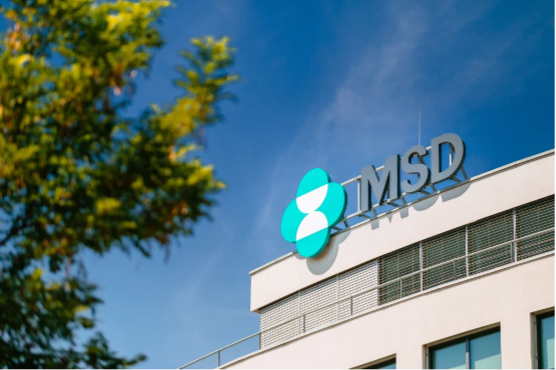MSD’s Keytruda use in adenocarcinoma could be limited based on biomarker
June 20, 2023
Source: drugdu
 290
290

Merck (MSD) has announced updated results with Keytruda (pembrolizumab) in the Phase III Keynote-811 trial, which opens up the possibility of changing the checkpoint inhibitor’s label in HER2-positive gastric or GEJ adenocarcinoma so it’s based on the tumour’s PD-L1 biomarker status.
The Phase III Keynote-811 study (NCT03615326) met its progression-free survival (PFS) endpoint for treating human epidermal growth factor receptor 2 (HER2)-positive advanced gastric or gastroesophageal junction (GEJ) adenocarcinoma in the intent-to-treat population.
A pre-specified interim analysis of trial data found a “statistically significant” improvement in PFS compared to placebo in the ITT group.
In 2021, as part of the same Keynote-811 trial, the US Food and Drug Administration (FDA) granted accelerated approval to Keytruda for treating locally advanced unresectable or metastatic HER2-positive gastric or GEJ adenocarcinoma, in combination with trastuzumab and chemotherapy containing fluoropyrimidin and platinum.
Based on the latest Keynote-811 results, MSD now plans to work with the FDA to update the label to specify the combination’s use in patients whose tumours are PD-L1 positive.
Full results will be presented at an upcoming medical meeting.
The trial enrolled 732 patients, randomised to receive Keytruda with trastuzumab, fluoropyrimidin-containing and platinum-containing chemotherapy, or placebo with trastuzumab and chemotherapy. The company claims a positive, but not statistically significant trend toward the other primary endpoint of overall survival (OS) was also observed.
Earlier this year, Keytruda secured full FDA approval for use in MSI-high solid tumours. According to MSD, it was the first time an immunotherapy based on predictive biomarkers received full approval.
This month, MSD presented data on Keytruda’s efficacy in treating non-small cell lung cancer at the American Society of Clinical Oncology (ASCO) Annual Meeting. It showed promising event-free survival (EFS) of 62.4% in the Keytruda arm, with median EFS not being met.
As it stands, GlobalData analysis predicts that Keytruda’s yearly revenue will hit almost $35bn in 2028, up from $21bn in 2022.
Reference:https://www.pharmaceutical-technology.com/news/msds-keytruda-use-in-adenocarcinoma-could-be-limited-based-on-biomarker/
By editorRead more on
- Jinghong Medical Secures Series A Strategic Financing, Co-led by Venture Capital and Binhu Industrial Group with FTEC Capital as Exclusive Financial Advisor December 29, 2025
- Brazil to launch single-dose dengue vaccination program; Chinese companies help boost vaccine production capacity December 29, 2025
- China Biopharmaceutical’s innovative drug TQH3906 completes Phase II clinical trial. December 29, 2025
- Transcenta Group-B and EirGenix Reach Biopharmaceutical Manufacturing Collaboration Agreement December 29, 2025
- Sinovac Biotech’s adsorbent tetanus vaccine officially launched December 29, 2025
your submission has already been received.
OK
Subscribe
Please enter a valid Email address!
Submit
The most relevant industry news & insight will be sent to you every two weeks.



